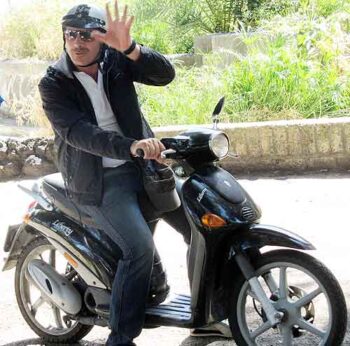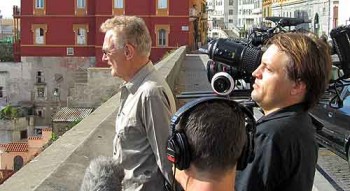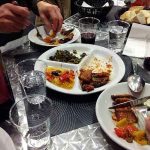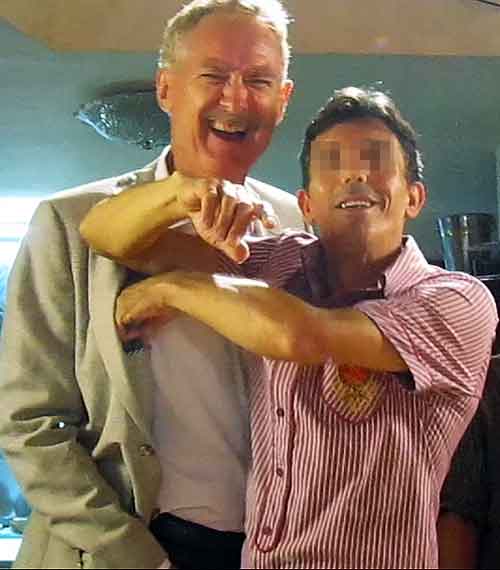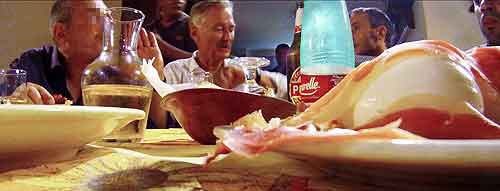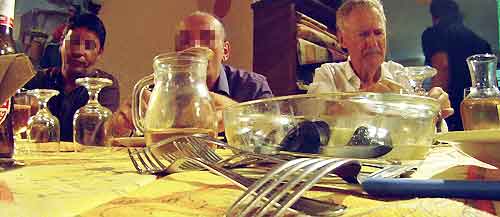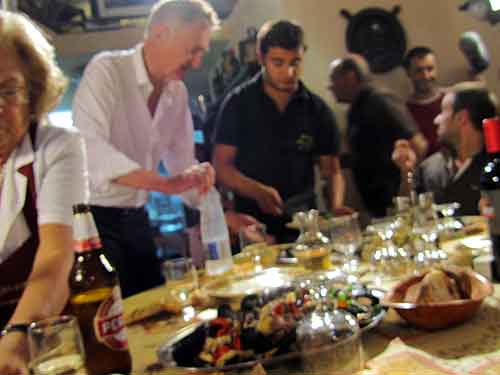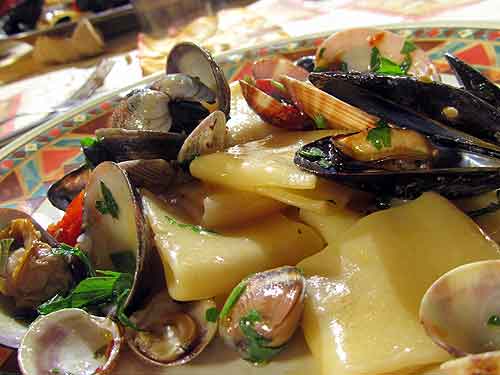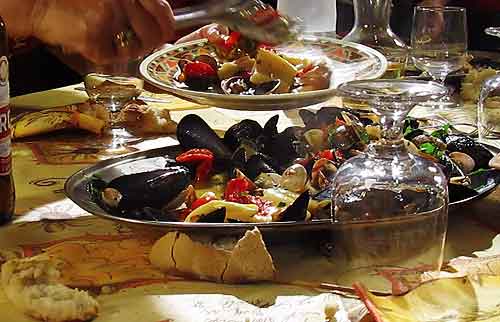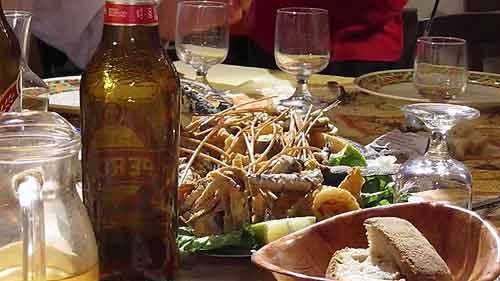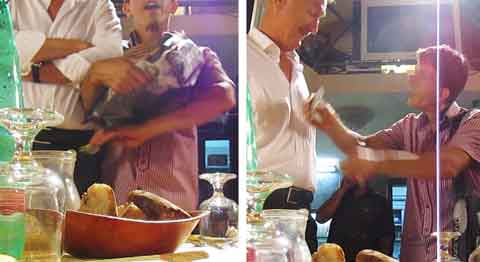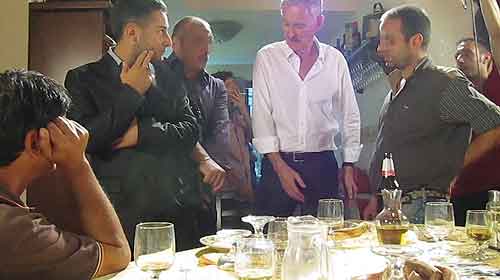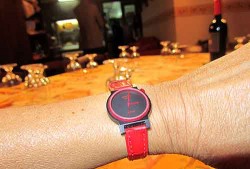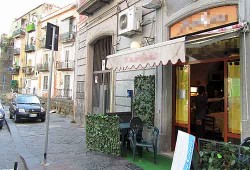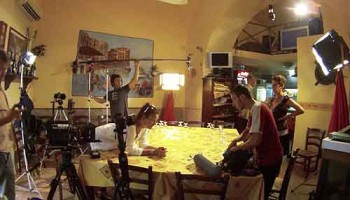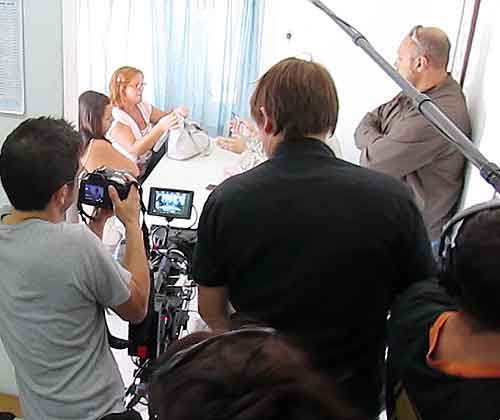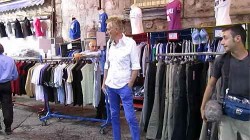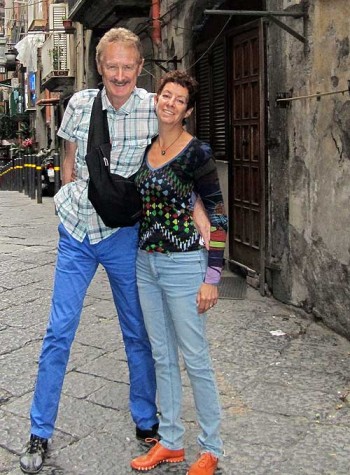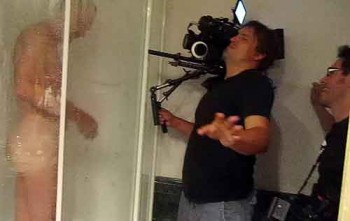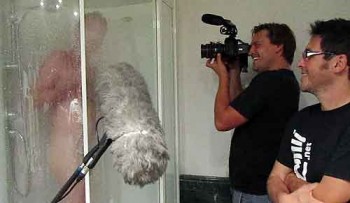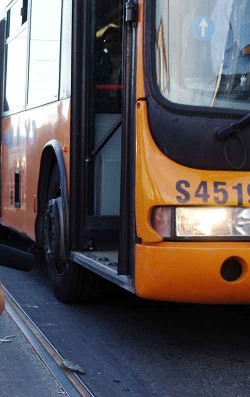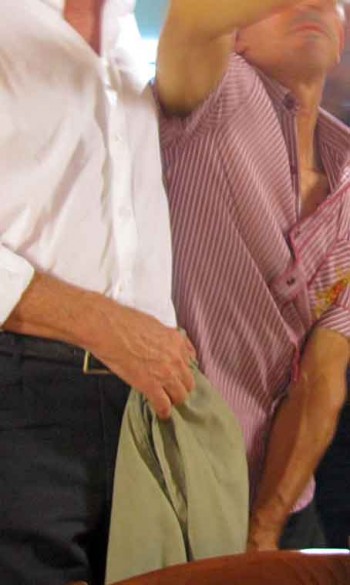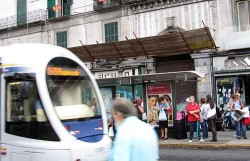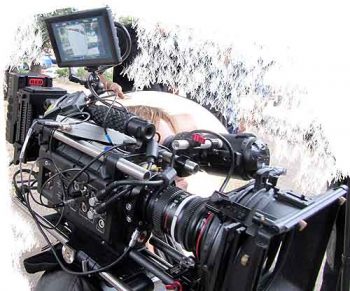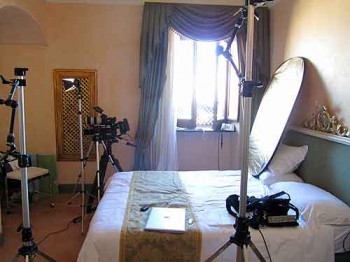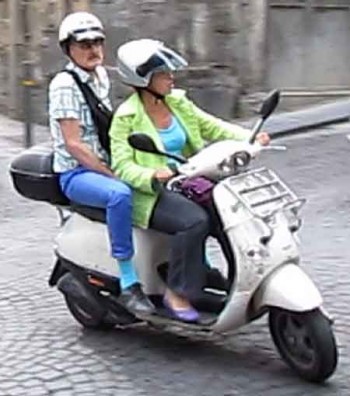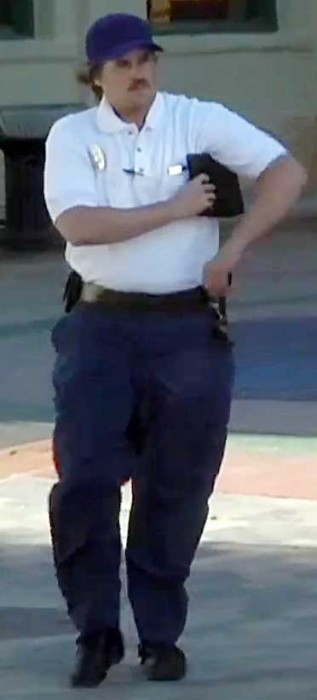
In what could be called a social experiment, it is proven that a man in a police-like uniform has great power and ordinary citizens are easily bamboozled into idiotic obedience. When the intent is robbery, pseudo-cops usually rely on flashing a fake badge; compliant victims then hand over their wallets.
In the following cases, “pseudo-cops” detain and accuse innocent passersby of theft. Watch the accused squirm under interrogation and threats; remarkably, they never question the legitimacy of the uniformed authority.
Bob Arno, preeminent pickpocket, was asked to help make a commercial for Toshiba and Intel. The idea was to slip the company’s new laptop into the bags of unsuspecting people as they strolled through Culver City, California. The laptop, called “UltraBook,” is so thin and light, the company believed that no one would even notice.
Preposterous! It turned out to be a challenging assignment.
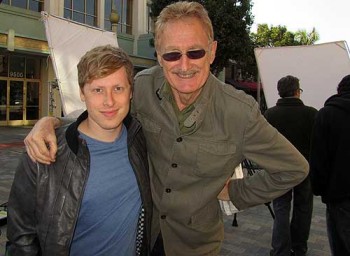
Bob roped in the talented and adorable magician Ben Seidman and together, the two deceivers rehearsed the teamwork and choreography necessary to “put-pocket” the computer.
Now, a computer, no matter how light, is a noticeable weight factor when added to a tote someone is carrying. And it is of a size that is difficult to slip in, between straps, handles, zippers, and buckles. It took some doing to distract the victim and mask the PLUNK! of the extra weight dropping in.
In practice, the two sneaks were more than successful. After brief, seemingly innocent encounters, more than a dozen unsuspecting victims wandered the streets unknowingly toting a Toshiba UltraBook.
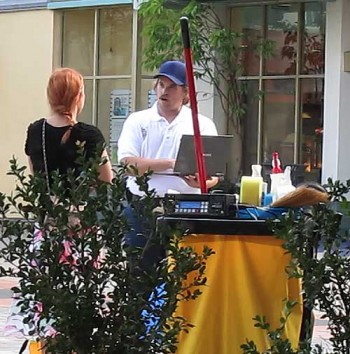
Each victim was then questioned by a “security guard” about a laptop which had supposedly been reported stolen. After a polite request to search the victim’s bag, the shocking discovery of the “stolen” laptop, and the victim’s protestations of innocence, the pseudo-cop became rude, belligerent, and provocative.
“For a criminal, you’ve got excellent taste,” the security guard said while admiring the laptop.
“You’re going to jail, missy!” the bad cop threatened one poor victim.
“Your fingerprints are all over it,” the guard told another victim after making him feel the weight of the laptop.
“But you told me to hold it!” the vic protested.
“We have no record of that,” the guard said.
To victim Claudia the guard says “You have great taste in stealing products.”
“Thank you,” Claudia replies, stunned almost speechless.
“What else do you have that’s stolen?” the guard demands.
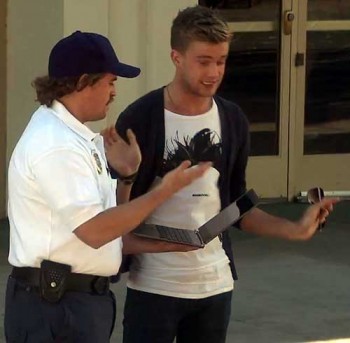
One victim broke down and cried. Another ran away. One accused the guard of racial profiling. But most stood in compliant disbelief.
The video series is a fantastic study of human behavior. It’s amazing to see how obedient people are when ordered around by an actor in a bad uniform. They’re blinded by authority. Most victims obeyed even his most ridiculous commands.
Watch Claudia’s frightened confusion:
Check out Ryan’s reaction:
http://www.youtube.com/watch?v=2l5-ul-Z0kA
See Tiffany’s disbelief:
http://www.youtube.com/watch?v=EV_nCLykZ_w
Here’s a montage of many victims:
http://www.youtube.com/watch?v=yoGYjtCo350
And meet the pickpockets who did the job:
http://www.youtube.com/watch?v=D49VH2Fav_4
The video ads were directed by Michael Addis and Jamie Kennedy. Though the experience was briefly brutal and sometimes frightening to the victims, comic relief was brought into each scene at the last minute, and some of the victims were rewarded with the gift of a laptop.
In the real world, thieves take advantage of our engrained respect for authority when they play pseudo-cop. With nothing more than a fake badge and a flimsy story, they make demands similar to our actor’s: open your bag, let me look inside, give me your wallet, give me your money… etc. We tend not to question them; we are obedient. And only later do we realize our gullibility. The thieves exploit our respect for authority and take advantage of our trust—that’s the CONfidence-building that gives the con artist his title.



